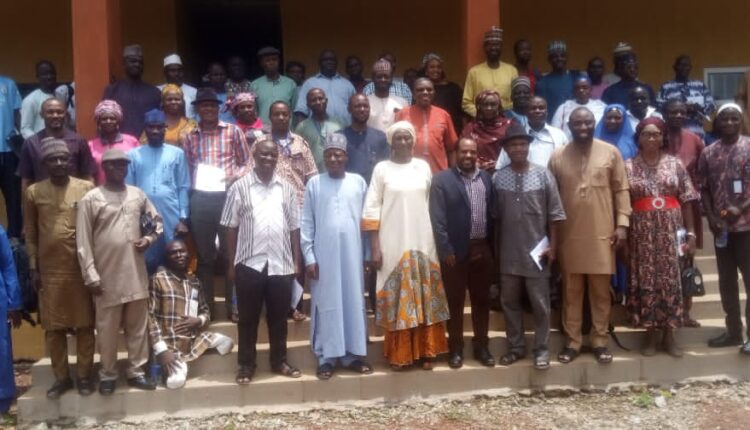USAID holds policy dialogue on Climate Change to promote smart agriculture
|
Getting your Trinity Audio player ready...
|
By our reporter, Lafia
The United States Agency for International Development (USAID) Policy Support for Economic Growth (PSEG) held a policy dialogue with farmers, policymakers, women groups, persons with disabilities, and the academia to promote climate-smart agriculture to boost crops and livestock production in Nigeria.
Oyinkan Tasie, a Professor at Michigan State University and Researcher with the PSEG/ Research Supporting African Medium and Small Scale Enterprises to Provide Safe and Nutritious Food (RSM2SNF)
said in Lafia, the dialogue aimed at promoting discussions on climate change.
Prof. Tasie said the interstate agriculture policy dialogue series was held in collaboration with
with the Research Supporting African MSMEs to Provide Safe and Nutritious Foods (RSM2SNF).
According to him, the meeting is essential and timely considering the concerns around rising food prices, hunger, and insufficiency of food across the country.
The policy dialogue is held under the auspices of the Interstate Agricultural Policy Dialogue Series supported by USAID’s PSEG and the Bill and Melinda Gates-funded RSM2SNF project both of which are implemented in Nigeria by Michigan State University alongside other stakeholders including the International Food Policy Research Institute (IFPRI).
“The PSEG objective involves supporting states to attain sustainable economic growth through agriculture and this requires evidence gathered through research and continuous training of stakeholders and conversations.
“It is in this regard that the USAID Policy Support for Economic Growth and the Bill and Melinda Gates funded RSM2SNF initiated and supports the Interstate Agricultural Policy Dialogue Series commenced in September 2023 and now in its 5 Session,” he said.
According to the Professor, under the policy support for economic growth, the program focused on six states; Kano, Kaduna, Nasarawa Plateau, Sokoto, and Zamfara.
“Although you saw 80 participants or thereabouts in this hall, we had about 100 people joining in online.
“In total, we had 180 people participating in this conversation.
“Several of the participants were persons with disabilities, one was a person with hearing impairment. Hence, we had a resource person who provided sign language services,” he said.
Prof. Mulubrhan Amare, Senior Research Fellow, International Food Policy Research Institute (IFPRI), a lead Facilitator, during his presentation entitled “Climate Change Income Sources, Crops Mix and Inputs Use Decisions: Evidence from Nigeria” underscored climate-smart agriculture.
According to him, the Government should promote climate-smart agriculture, develop the livestock sector as a mechanism to adapt to climate change, and provide intervention for vulnerable households and climate-impacted people.
In her remarks, Abigail Waya, Nasarawa State Head of Civil Service, called for synergy between academia and the Ministry of Agriculture to achieve the aim of the project thereby boosting food security in Nasarawa State.
“We are still farming the way our parents did several decades ago, So, there is so much to learn unlearn and relearn. We are very grateful that we have the faculty of agriculture here, we have the college of agriculture and we have another faculty of agriculture in the Federal University of Lafia,” she said.
Also speaking, Prof. Samuel Okunsebor, Dean, Faculty of Agriculture, Nasarawa State University said the dialogue would help to improve and develop the kind of agriculture practices that could resist climate change.
Mrs Esther Matthew, Coordinator, Association of Women in Trade and Agriculture, lamented that women farmers were facing a lot of challenges and were sometimes relegated to the background when it comes to policy formulation as it affects them.
She made a case for the inclusion of women farmers in policy formulation, farm inputs distribution, and decision-making as it affects them to increase their farm productivity thereby increasing their income generation.



Comments are closed, but trackbacks and pingbacks are open.